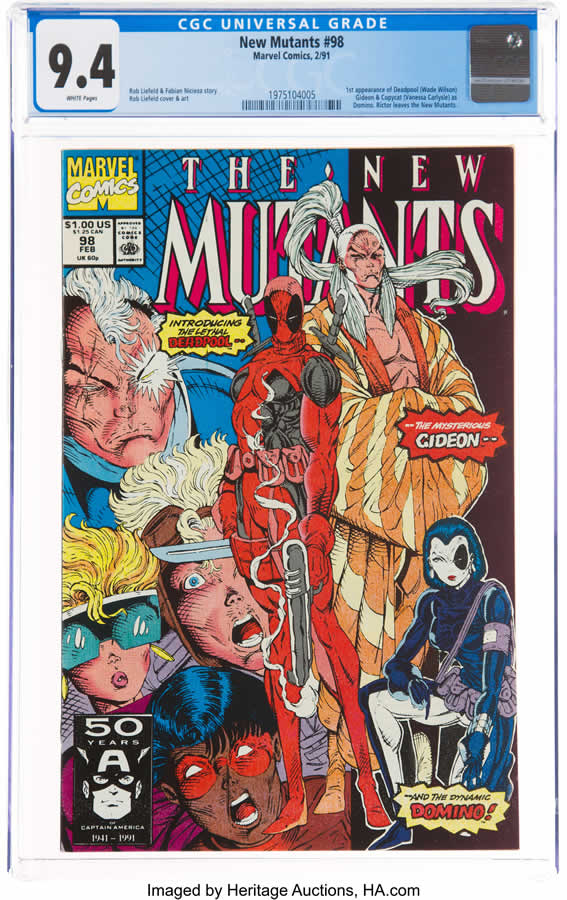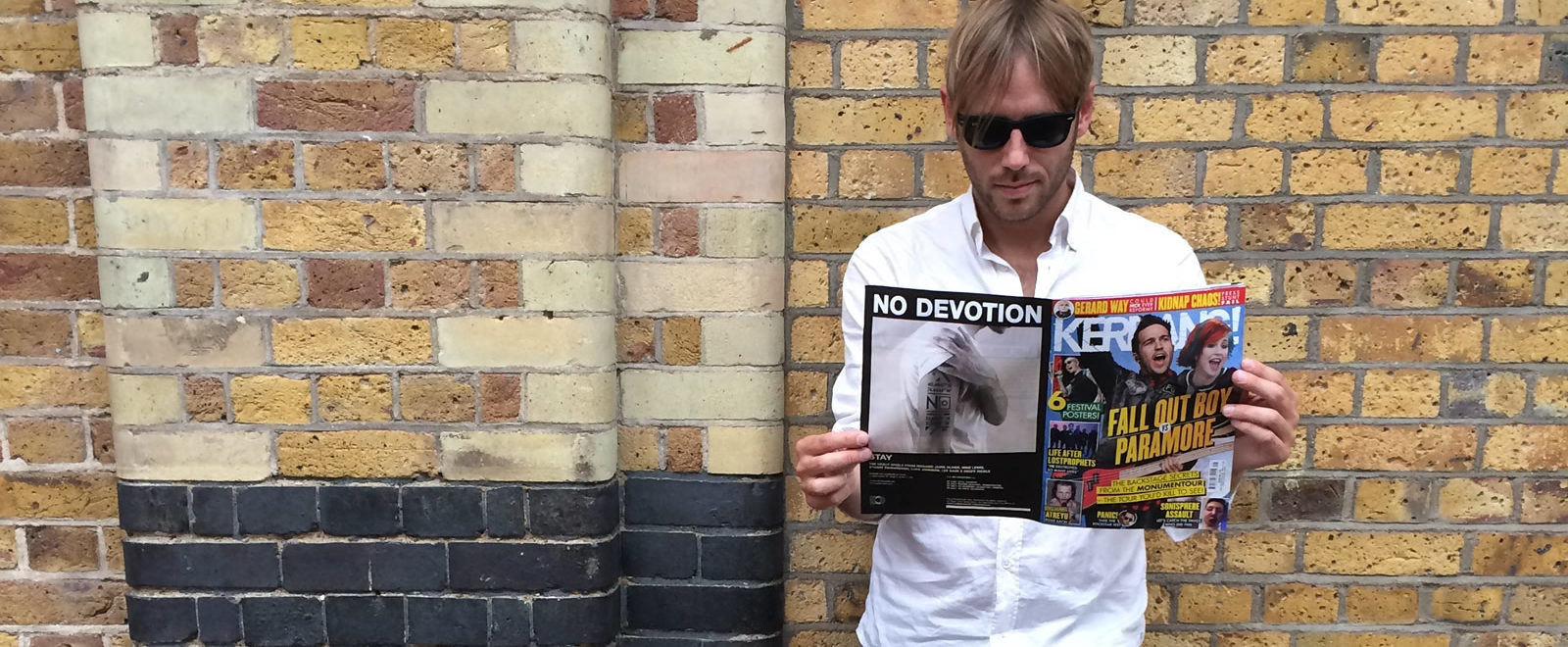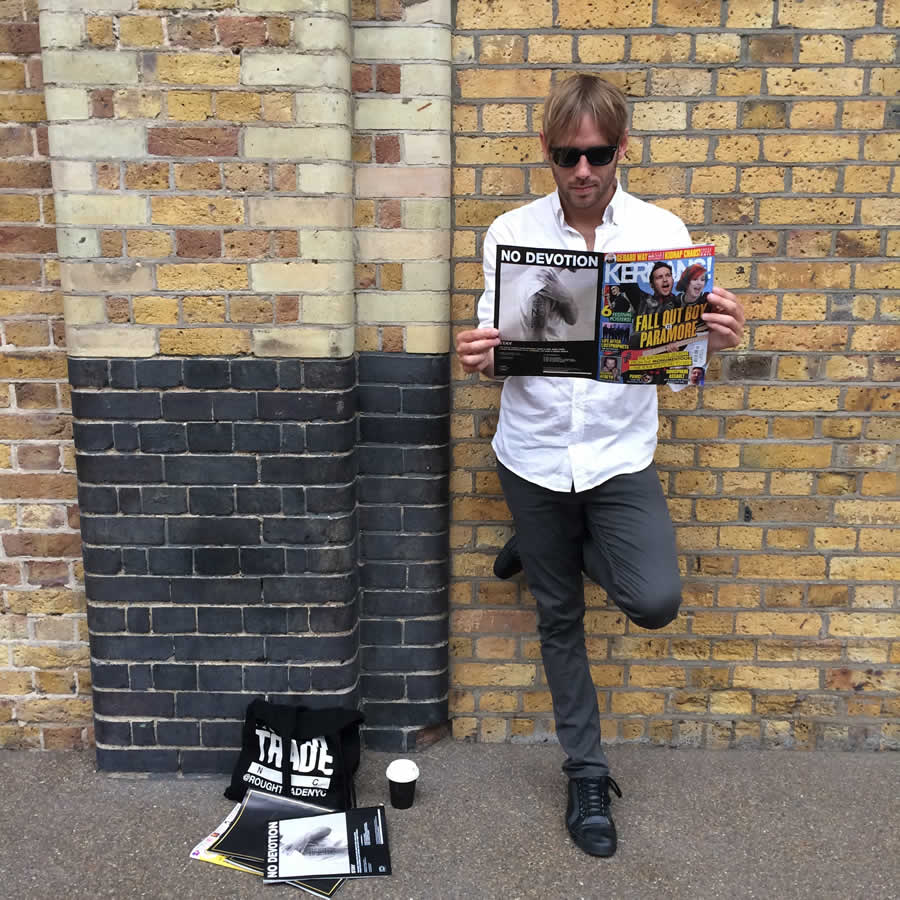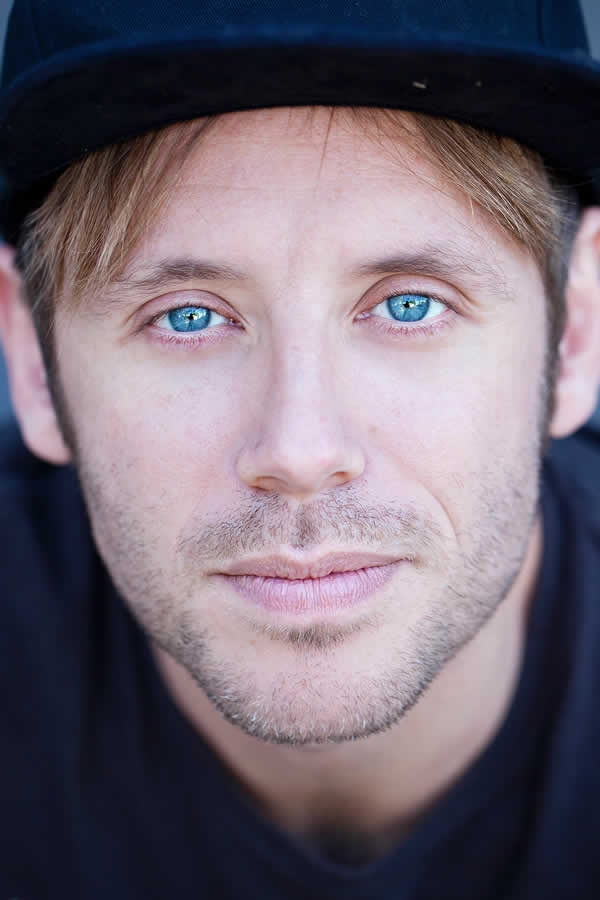MUSICIAN GEOFF RICKLY SAYS BOREDOM LED HIM TO COMIC BOOKS – HE HASN’T HAD A DULL DAY SINCE
By Eric Grubbs ● Rickly photos by Liza de Guia and Colleen Allison Barjas
EVENT
COMICS & COMIC ART SIGNATURE® AUCTION 7248
Nov. 18-21, 2021
Online: HA.com/7248
INQUIRIES
Lon Allen
214.409.1261
LonA@HA.com
Ed Jaster
214.409.1288
EdJ@HA.com
Geoff Rickly is best known for fronting a few bands. As a singer and songwriter for the post-hardcore group Thursday, as well as United Nations and No Devotion, he has toured all over the world and recorded several albums. As obsessed as he is with music, he has reignited his passion for another childhood love: comic books.
As he grew older, he started to follow writers like Grant Morrison and Jim Lee. That led him down some interesting paths as a reader and a collector. After 9/11, a young band asked Rickly to produce their first album. He suggested their singer, who was into drawing comic book characters, redesign the band like his own comic book art. That band would become My Chemical Romance. And that singer, Gerard Way, would go on to write for Doom Patrol and The Umbrella Academy.
We spoke with Rickly after a recent Thursday tour and discussed his love of comics.
Before you were known as Geoff from Thursday, what came first: comic books or music?
Comic books probably came first … but when music became all-consuming, that’s when a lot of my comic book collecting started to die out. That was probably 1991-ish. There was a little bit of overlap because I auto-pilot kept collecting. By then I had become so single-minded in my fascination with music. That was probably around the time of finding Nirvana’s Nevermind and Nine Inch Nails’ Pretty Hate Machine.
Enlarge

What would you say got you into comic books in the first place?
I was visiting my grandparents in Florida. I was so bored. I’m not a beach person at all. The only place that had anything interesting was the spin-rack at the pharmacy. I saw an X-Factor and an X-Men. It was an issue that had Havok in it. I really liked Havok right away. I read those issues over and over for the week I was staying there. When I got home, I started looking for comics and talking to my grandmother on my other side about all the comics I was interested in. It sort of snowballed over the next year. I became obsessed with X-Men, New Mutants, X-Factor, and then I realized you could go back and get back issues. I had a local comic book shop with a pull list and I got really into it.
When did the collectability of comics kick in for you?
I had done a little bit of baseball collecting when I was a kid because my grandmother and I were Mets fans. We used to see the Mets at Shea. The 1986 Mets was a crazy time for me. I got really, really excited about it. Around the time I really got into Wolverine, I wanted to find his first appearance. I was a completist. I wanted to know everything that happened to a certain character. I tracked down Hulk No. 181 with my nana. It was so expensive. I think it was $125 or $175. For the ’80s, a comic being that much was borderline crazy. It wasn’t a Golden Age comic. It was a Silver Age one. Realizing it could be that much money made me realize there was a collectability to comics. I bought the Overstreet guide every year. Then I started being a lot more careful. I bought a few of the first appearance of Cable and a few of that first Deadpool issue.
Can you pinpoint when you got back into comics?
When Thursday was starting to wind down a little bit, Gerard Way’s comic, The Umbrella Academy, was really hitting, winning all these Eisner awards. I read that and was so blown away. Someone recommended Matt Fraction’s Casanova. And that blew me away even deeper. And then I got back into The Invisibles and the original Doom Patrol. I got into the postmodern, serious side of pop comics. I really love that intersection of the joy I got from comics as a kid but also combining it with great art direction.
When you go on tour, how do you keep your comics in good condition?
Everything on tour gets trashed. There’s no room to keep anything. As an adult, my collecting of comics has fallen, but my love of comics still survives it all. I love the medium.
How big is your collection? Are there any items you would never sell?
Probably around 7,000 comics. There are some sentimental things that probably aren’t worth anything. Those are the ones I’ll hold onto and remember the joy of collecting.
 ERIC GRUBBS is a pop music cataloger at Heritage Auctions.
ERIC GRUBBS is a pop music cataloger at Heritage Auctions.



